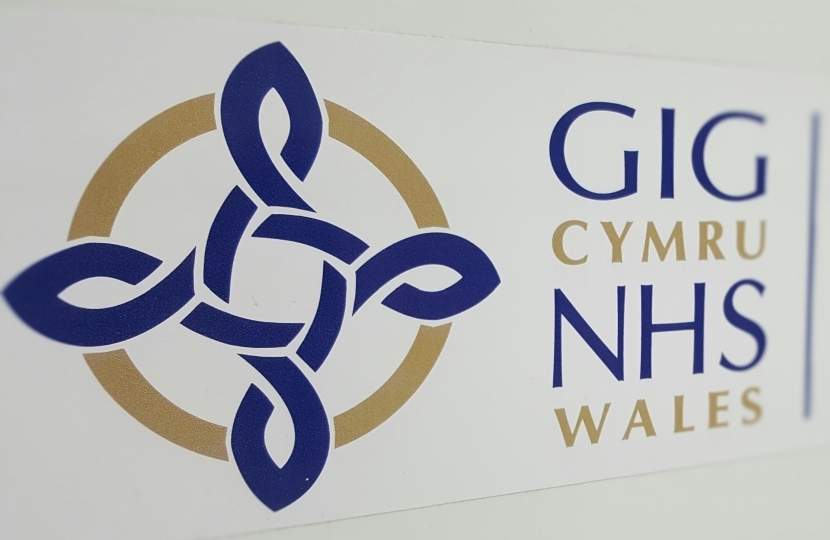
Dr James Davies MP has expressed his deep concern at Healthcare Inspectorate Wales’ “Quality Check Summary” [20220518YsbytyGlanClwyd-EN_0.pdf (hiw.org.uk)] relating to the Glan Clwyd Hospital Emergency Department.
The report, which relates to assessments carried out between 8th and 10th March, and 3rd and 5th May, summarises a damning situation at the department, with a frequent absence of patient monitoring and safety checks, non-observance of national clinical policies as well as local management procedures and processes, evidence of a failure to learn from or share critical incidents, non-compliance with mandatory training, excessive delays, and a culture in which management were either unaware of concerns or did not respond when those concerns were brought to them. The report additionally details infection prevention and control concerns.
The report's comments include:
"...patient locations were not kept up to date. This had led to confusion and delays in vital care and treatment being provided to patients."
"...a patient should have been seen within 10 minutes and waited over six hours to see a doctor. This patient subsequently became more unwell. In 14 out of 20 cases, patients were not seen within the recommended time."
"... risk that patients could deteriorate unnoticed and not receive time critical interventions. In some cases observations were not repeated before the patient left the department. This meant there was no accurate record of their clinical condition prior to leaving."
"Risk assessments and tools for the assessments of patients presenting with mental health conditions were not routinely used."
"Evidence based pathways, risk assessments and guidelines were not being used consistently. This posed a risk to patient safety. In all cases reviewed, standard risk assessments were either not completed fully or absent."
"Safeguarding checklists and prompts were not completed in 18 out of 20 cases."
"In some cases, patients showed...possible sepsis, and in all cases they were not screened or treated in line with the health board's or national guidelines on the assessment and management of sepsis."
"In all cases reviewed, the standard of nursing documentation fell far below the expected standard and did not include significant information required. This included the complete absence of documentation in some instances. This was despite some patients being present in the department for in excess of eight hours and requiring nursing care."
"...senior nursing staff had raised concerns with middle management and these concerns had not been acted on."
"...patient flow becoming sometimes chaotic and ineffective at all levels."
"...due to the deficits in the nursing care, documentation and escalated nature of the department this presented significant barriers to medical staff being able to undertake their roles effectively."
"In 12 out of 14 cases there was no information recorded by nursing staff relating to the discharge arrangements, checks and safety netting."
"...patients were placed at risk of avoidable harm."
April’s A&E wait statistics also paint a miserable picture, with only 34.7% of patients having been seen within the four hour target and 67.9% within 12 hours.
James said:
“The situation described within this report sadly chimes with complaints brought to me regularly by constituents and it is simply not good enough. Of course people understand delays brought about by the pandemic and of course the vast majority of hospital staff work hard to provide compassionate and quality care. However, the environment they are working within has been letting both patients and staff down since long before the pandemic.
“The report repeats many of the findings of other assessments at the Health Board going back many years now – most recently in reference to vascular surgery and mental health, but also more generally in terms of HIW, Audit Wales, the Ombudsman and the Coroner.
“One of the Emergency Department’s main challenges is that it is working within a broken system, where access to care can be grossly delayed – whether it be GP appointments on the one hand, or two year waits for surgery on the other. That, in my view, is the end result of an inward-looking and South Wales focussed mentality, combined with a lack of capacity and capability at Welsh Government since devolution was brought about 23 years ago. The harsh reality is that it will take many years to overcome the damage done.
“I attended a meeting with the Health Board’s Chief Executive on Friday. In the short term, I have suggested to her that she approach the Royal College of Emergency Medicine (RCEM) to seek from them gold-standard leadership for the department for a defined period. I have also indicated that I do not believe that the positions of the management criticised in the report is tenable. Further, the Welsh Government must now urgently approve funding for the new Royal Alexandra Hospital in Rhyl.
“I will be speaking to my colleagues in the UK Government to discuss options going forward. It is clear that there needs to be a greater role for the UK Government in ensuring the safety of healthcare in North Wales.”

